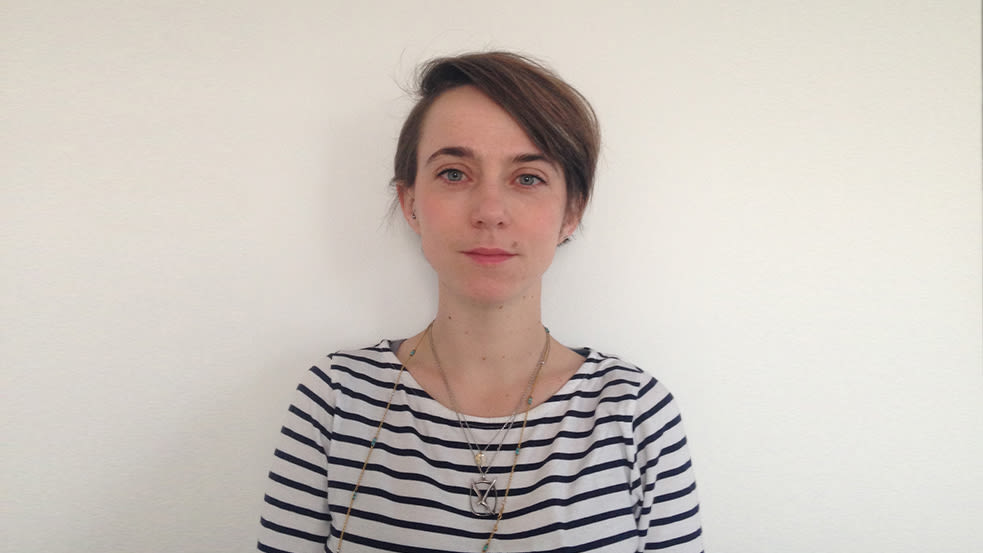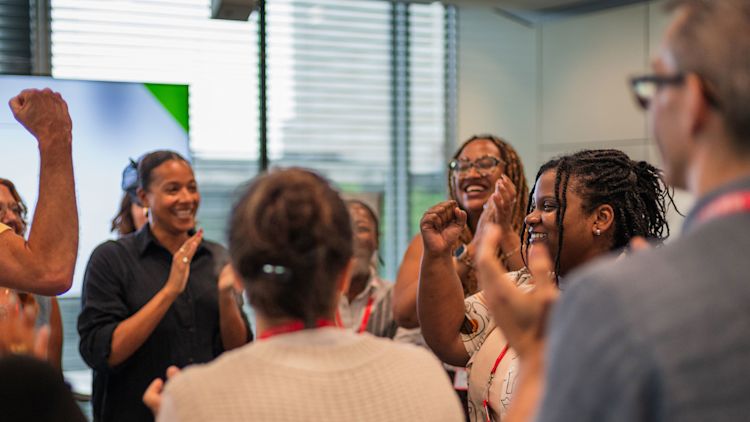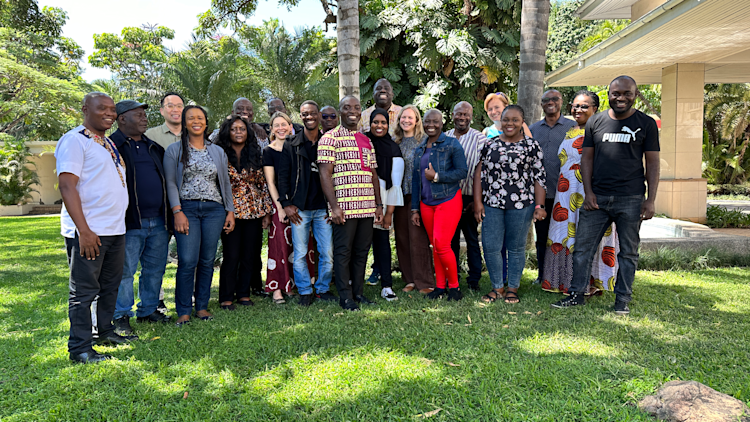
By Venetia Boon
UK Grants Manager at Comic Relief
The responsibility of any funding organisation like Comic Relief is to seek out and support the best work, to shine a light on that work, celebrate it and fund it. I also think it is our responsibility to learn from the organisations we work with and understand how their best practice can be brought into our own delivery. In particular we were keen to consider ways we could work in partnership with young people. When we started discussing our partnership with the #iwill fund it felt like a great opportunity to do that.
The programme was a fantastic opportunity to work with young people to design a funding programme for young people and to use their valuable insights about youth social action. In particular, we wanted to explore ways in which we could incorporate their knowledge and experiences into our grant funding process. This wasn’t about passing over responsibility to other people, but understanding how their knowledge adds value to our own. By doing this we could stress test and highlight both the potential cracks and nuggets of gold.
Comic Relief is not unusual in considering this approach. Though the terms used are different (co-production/co-creation/participation), they’re being regularly mentioned by funders, funded organisations and individuals. It’s clear that the shift towards doing with rather than doing to is well underway. We spoke to people already using the approach and commissioned facilitators to help us deliver the work. Their input was incredibly helpful and influential. Though we’re early on in our journey, piloting this approach was hugely positive for the programme.
The group of young people we worked with had experiences of being in care, caring, mental health problems, poverty, violence and immigration. Hearing their ideas on what might encourage them to get involved with social action was really informative. They were brutally honest about what didn’t interest them, but clear and excited about why it would be positive to be a part of social action. Research has shown that young people from less affluent backgrounds are less likely to take part in social action, and thus less likely to experience the benefits. The young people we worked with showed us ways we could frame the initiative to create opportunities likely to interest others currently not participating in social action.
A key motivator throughout was the young man who told us right at the beginning that he didn’t believe we would follow through. He said that he was used to people from organisations like ours promising much and delivering little. Though we already knew it, this was a clear reminder that once we’d begun, we needed to continue with the same honesty and commitment we’d had from the very start. We had to be upfront when we made mistakes and opting out halfway through definitely wasn’t an option.
The process wasn’t without its challenges. There are things we didn’t get right. We had to tweak the process as we went along and we have identified different decisions we’d take to do better next time round. It’s still relatively unusual for funding organisations to take this type of approach and we had to be flexible and adapt.
We didn’t finish the programme with the same number of young people we started with, as some of them no longer had time, some had got what they wanted from the process, and some for personal reasons. I miss those people who started with us. They all had insightful, thoughtful and intelligent things to contribute and I’d love to hear their thoughts on the final funded projects.
But talking to the young people who are still with us is exciting. They have given us a clear list of what they didn’t like, but they’ve also told us what they did. They’ve told us how it felt to learn about grant making and being able to explain to a grandparent what organisational reserves are and why they matter. They’ve told us how they felt from the beginning that we took their experiences seriously and followed through on what we said we would. Several people in the group spoke about the positive impact it’s had on their mental health, which is fantastic. Others have talked about their future job options, experience, skills, confidence and feeling the value of being listened to.
Fundamentally, this activity didn’t operate within a vacuum. These young people generally lived their life away from our work, going about their daily business, seeing friends, and working with front line delivery organisations. The benefits from taking part in youth social action varies from individual to individual, but for our project, most of the group found it a beneficial experience. Feeling listened to and valued enough changes lives, and listening to and valuing other experiences changes structures, which is what we’re all trying to do at the end of the day.
This week, Comic Relief is delighted to be joining the #iwill fund in celebrating #iwillweek, a week-long celebration of young people who lead social change in their community.


